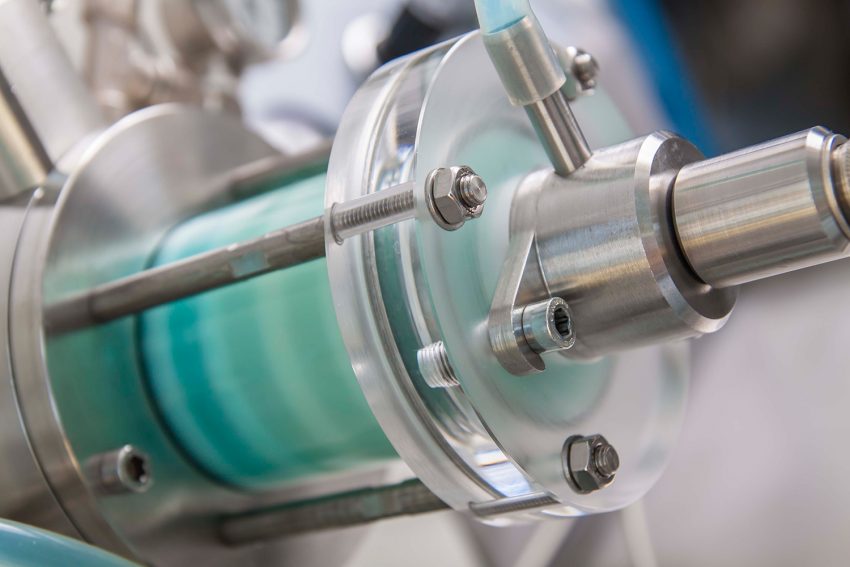Simulation of Shredding Processes Two doctoral students are doing research within the framework of the Innovative Training Networks
Precision work for the advanced: Two international PhD students from the Institute for Particle Technology at TU Braunschweig will spend the next three years researching simulation methods for dry comminution processes. They will be funded within the framework of the Research Training Group Innovative Training Networks (ITN), a structured doctoral training in networks of several European institutions.

Demonstration experiment on comminution in an agitator bead mill. Picture credits: Institute for Particle Technology/TU Braunschweig
“The two doctoral students are researching in two projects on the dry fine comminution of particles, which are particularly important for foodstuffs and active ingredients, but also for drugstore articles and battery materials,” explains Professor Arno Kwade, head of the Institute for Particle Technology at the TU Braunschweig. “With the help of simulation methods for dry comminution processes, we want to enable the industry to manufacture their products in the desired high quality with the least possible energy and time expenditure”. According to Kwade, minimizing the energy required to produce the product mass is a particularly important goal, since around four percent of all electrical energy worldwide is used for shredding.
The research goal of this network is the development and investigation of three methodical approaches to move from micro scale simulation results to the simulation of complete processes and process chains. Industrial processes in the field of mixing, conveying and dosing, comminution and granulation of particles and powders are viewed as example processes.
The two PhD students will conduct research both at the Institute for Particle Technology at TU Braunschweig and in industry in other European countries. Kwade: “This Research Training Group for multi-scale simulation will enable us to collaborate intensively with European research partners and companies in the coming years”.
